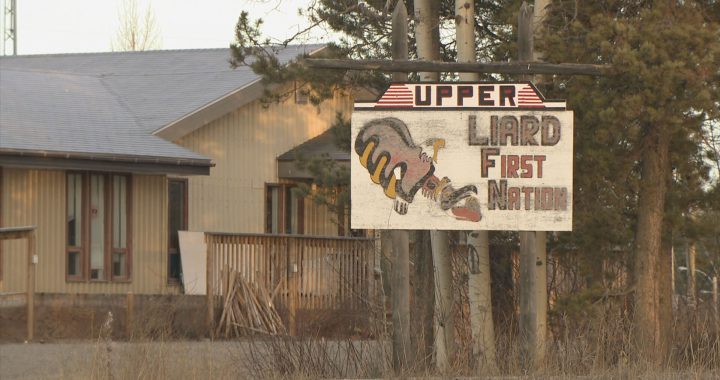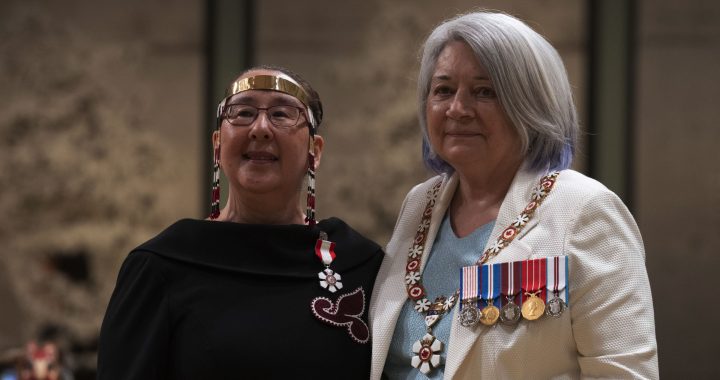Jorge Barrera
APTN National News
Ottawa is exploring ways to review how it has handled its side of the multi-billion dollar Indian residential school settlement agreement which would include a look at how federal lawyers operated during private hearings to determine compensation for survivors.
The federal Indigenous Affairs department said officials were asked by Indigenous Affairs Minister Carolyn Bennett last week to determine the best way for Ottawa to review its obligations set out in the settlement agreement, which created a survivor compensation mechanism called the Independent Assessment Process (IAP).
“(Department) officials were asked to explore options for conducting a final assessment of Canada’s obligations under the Indian Residential School Settlement Agreement prior to its conclusion,” said a statement from the department.
The IAP process has come under increasing scrutiny following a steady drip of revelations on some of the tactics Ottawa lawyers employed to limit the compensation sought by survivors.
Court records show federal lawyers have suppressed documents and used technical and legalistic arguments to defeat claims filed by survivors during the IAP process.
Bennett has previously asked officials to review IAP cases where federal lawyers used technical and jurisdictional arguments to defeat IAP claims. That review is still ongoing, the department said.
NDP MP Charlie Angus, who has been a persistent critic of both Ottawa’s handling of IAP cases and the system itself, said it was good to know Ottawa was finally acting on the issue.
“But if they are serious, they will stop fighting survivors in court. They can’t have it both ways,” said Angus. “Survivors are reliving the trauma or passing away without receiving justice and this government, like the last government, has opted to use the muscle of the Justice Department rather than work towards reconciliation.”
Federal lawyers are currently appealing a recent court decision that lambasted the IAP process for failing a claimant from the Spanish Boys Indian residential school, which operated near Spanish, Ont.
Ontario Superior Court Justice Paul Perell ordered Ottawa in July to enter into compensation negotiations with the claimant who was raped as a boy by a priest at the school.
Ottawa’s lawyer at the IAP hearing possessed a document that proved the claimant’s story, but it was never submitted. The IAP adjudicator dismissed the claim after concluding the claimant’s timeline didn’t match with the school’s closing. That ruling was upheld in an IAP appeal and re-review.
- This past August, Assembly of First Nations National Chief Perry Bellegarde wrote Bennett and Dan Shapiro, chief adjudicator of the IAP Secretariat, asking for a review of cases involving sexual abuse. The letter was in response to a Manitoba judge’s decision to re-open a claim with the IAP that had been rejected because the adjudicator determined the nun’s “sexual intent” couldn’t be determined, according to a report in the Winnipeg Free Press.
- In May, Perell heard a case, now in the midst of a re-hearing before the IAP, of a survivor who attended the notorious St. Anne’s Indian residential school in Ontario’s James Bay region. The survivor took his case to court after he lost before the IAP because federal lawyers suppressed thousands of OPP investigation documents that supported his claim of sexual abuse.
- This past February, APTN reported on a residential school survivor who was denied compensation for a rape she suffered as a 7 year-old girl at St. Michael’s Indian residential school in Alert Bay, B.C. IAP adjudicators sided with federal lawyers who argued the claim didn’t qualify because Indian Affairs’ Indian day-school branch paid the teachers who worked in the building where the attack happened. Day-schools were not covered by the settlement agreement.
- In another case, federal lawyers were successful in defeating a claim from a residential school survivor who suffered a broken arm at the hands of a nun and suffered partial paralysis after a misapplied polio shot at the Grouard Indian residential school in Alberta. Federal lawyers successfully argued Ottawa had transferred responsibility of the school to provincial authorities at the time of the incident. Yet the institution continued to accept “Treaty Indians” and receive dollars from Ottawa when the incident happened. In that case, an Alberta court ruled IAP adjudicators had the power to disqualify claims from survivors who attended residential schools listed as part of the settlement agreement, even if the same survivors received common experience payments.
It’s believed Justice Canada lawyers have used tactics like these against claims from about 50 schools, impacting potentially thousands of cases.
In addition to this, thousands of IAP cases may have been compromised by the questionable actions of some lawyers. One high-profile case involved Calgary lawyer David Blott who was disbarred after it was found he improperly represented his residential school clients.
Blott was handling about 6,000 cases, but the IAP provided little recourse for his clients and instead told them to find a civil lawyer. The IAP Secretariat refused to review Blott’s clients’ files even after it was shown some survivors had their testimony change by people working for the disgraced lawyer.
The Law Society of Upper Canada received a complaint this past spring against Ontario law firm Wallbridge, Wallbridge over its handling of a St. Anne’s case, according to court documents. The law firm possessed OPP records that would have supported at least one of its client’s case before the IAP, but never used them, according to court documents.
Other lawyers handling residential school cases in Vancouver, Winnipeg and Kenora, Ont., have faced or are currently facing investigations or disciplinary hearings.
During a Saskatchewan Court of Appeal hearing this week, federal lawyers accused one of the main law firms handling IAP cases, Merchant Law Group, of fraud, deceit and misrepresentation. The firm is headed by Saskatchewan lawyer Tony Merchant.
Ottawa is trying to recoup some of the $25 million the firm billed in handling residential school cases.
Ottawa lost its case against the Merchant Law Group in the lower courts.
@JorgeBarrera










